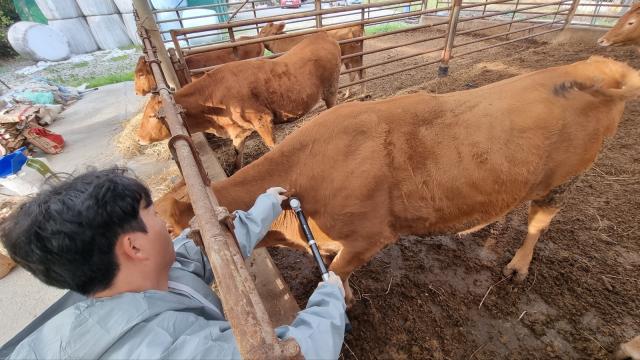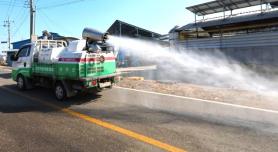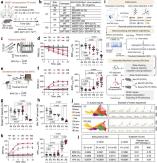
SEOUL -- The sudden, unexpected spread of lumpy skin disease in the southwestern parts of South Korea has put the country's agricultural ministry and cattle farmers on high alert. This is the first time South Korea faced the infectious disease with a morbidity rate of 37.9 percent and a mortality rate of 4.2 percent.
Lumpy skin disease (LSD) is a viral disease transmitted by blood-feeding insects such as flies, mosquitoes, and ticks. When a cow is infected with the virus, the animal would show symptoms of high fever, enlarged superficial lymph nodes, and multiple nodules, lumps measuring up to five centimeters (about two inches) on the skin.
Normally, LSD outbreaks take place during summer and in early autumn when the temperature is high and the air is humid. Most cattle can develop lifelong immunity after they recover from LSD, but many farmers use vaccines to prevent cattle from catching the disease. There was no official outbreak of LSD until the first reports of the disease in mid-October 2023.
According to the agriculture ministry, there are 14 cases of LSD infections reported as of October 22. The first outbreak was reported in the southwestern county of Seosan and its nearby areas including Pyeongtaek, Taean, and Gimpo, a western satellite city of Seoul. The ministry is currently investigating three possible outbreak cases.
To prevent the disease from spreading to other areas, the government will strengthen quarantine measures for the next three weeks while culling all cattle in infected farms. The agriculture ministry said that the government had secured 540,000 doses of LSD vaccines and is planning to secure some 1.7 million doses of vaccines in November.
Animal auction houses in the southwestern area are all closed until October 25. "There is no need for excessive fear over LSD as the disease only infects cattle and is not capable of attacking humans," Minister of Agriculture, Food and Rural Affairs Chung Hwang-geun told reporters during a press briefing on October 22.
Copyright ⓒ Aju Press All rights reserved.




